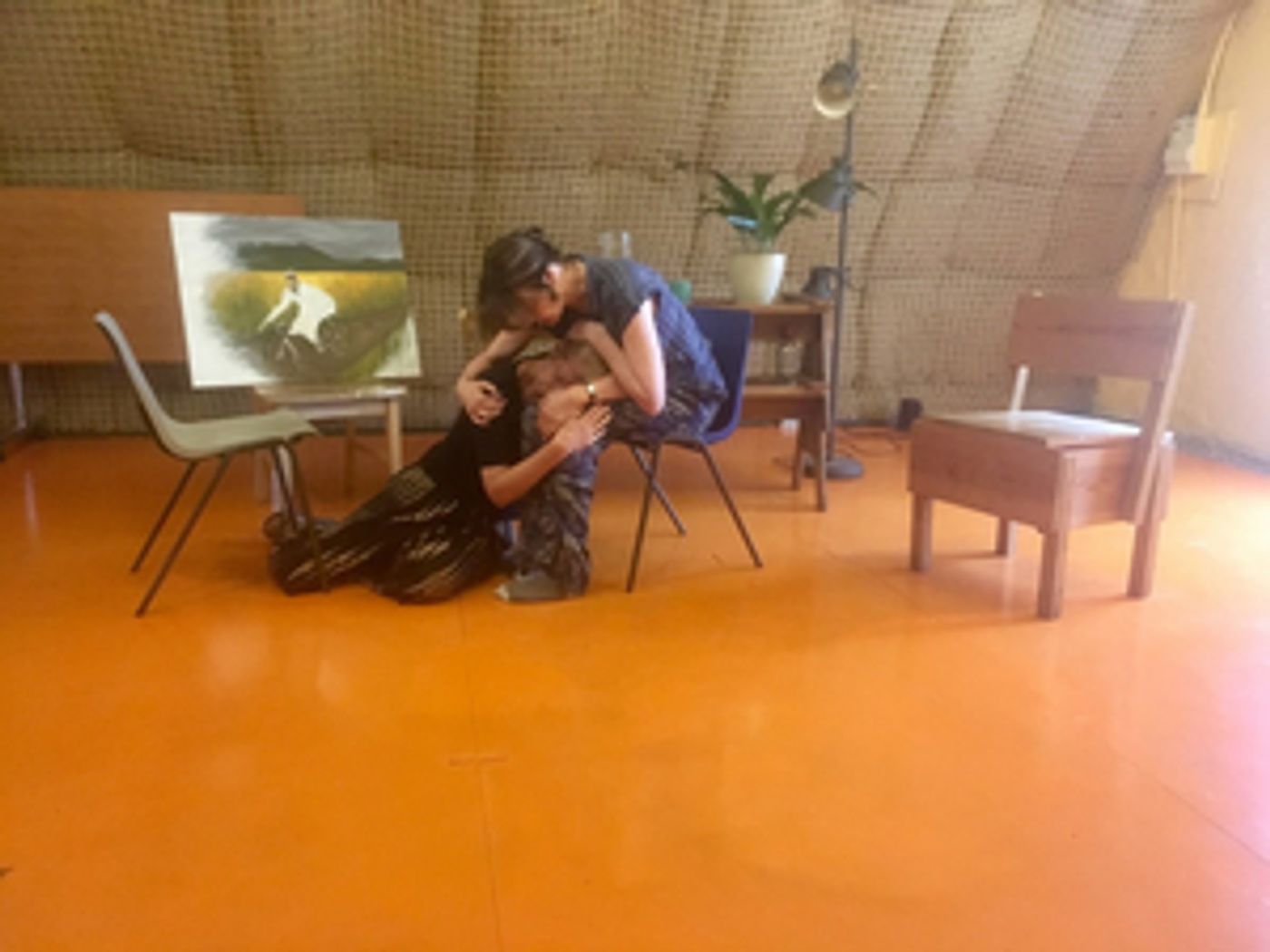Review: REMEMBER, The Cockpit

![]() Directed by Lawrence O'Connor, Remember takes us on two very different journeys through grief. Karen's son Thomas has been killed in a cycling accident and we follow her as she undergoes psychotherapy. At the same time, Thomas's wife Elizabeth is also struggling to come to terms with her loss, embarking on a religious route to recovery and acceptance.
Directed by Lawrence O'Connor, Remember takes us on two very different journeys through grief. Karen's son Thomas has been killed in a cycling accident and we follow her as she undergoes psychotherapy. At the same time, Thomas's wife Elizabeth is also struggling to come to terms with her loss, embarking on a religious route to recovery and acceptance.
As we enter the intimate black box studio of The Cockpit, we find a figure lying asleep on the floor. This is Karen. Having to walk around her as we make our way to our seats creates a real sense that we are invading this person's privacy, and from the off, we feel somewhat intrusive.
For a play about grief, which is often an innately private emotion, this artistic decision pays off. We are immediately in Karen's world. An imaginary conversation with her deceased son pulls at the heartstrings very early on, however rather than making us endure a bleak two hours about death, debuting playwright Annie Moss has succeeded in creating a very rich and multi-layered script, interweaving poignancy with character-driven humour.
As a London-based psychotherapist, Moss has first-hand experience in helping other people through grief and knows all too well just how complex a process it can be. She's keen to explore how we defend ourselves during times of such pain and vulnerability, but also how our memories can alter over time. The fact that Moss is using her professional expertise and experiences of course lends an authenticity to the play. It's interesting to see Karen being resentful towards her therapist, fighting against him and the process of psychotherapy, which is of course her really fighting against herself.
The inner turmoil and conflicting emotions experienced by Karen make her such a multifaceted and compelling character. Anna Dane Farnworth delivers a realistic and believable performance as a mother struggling with coming to terms with her son's death. You can hear the pain in her voice, with every facial expression and movement conveying so many different emotions. It's a hard and taxing role to take on, but she more than does it justice.
Farnworth is well supported by a talented and committed cast. It's clear this has been a collaboration, with each investing a great deal into the project.
Gillian Broderick excels as Elizabeth, an alcoholic. It's another very authentic and nuanced performance, which at times also generates some welcome laugh-out-loud moments. We flit between sympathising with her to growing frustrated by her digs at her husband, played by Ashley Gunstock - with whom Broderick has strong chemistry. Elizabeth embarking on a religious journey provides an interesting contrast to Karen's psychotherapy as these two quite complex characters attempt to mend themselves in very different ways.
The actors are on stage throughout, sitting quietly on the edge of the space when not in a scene. Much like the opening, this is another choice that pays off in conjuring up the idea of characters being scrutinised and judged for their handling of the various situations they find themselves in.
Karen is under close observation by her therapist, played sensitively by Monty Lloyd. She feels she's under attack and forever on her guard. Likewise, Elizabeth is under the overbearingly watchful eye of Sylvia, a member of a religious support group played brilliantly by Barbara Cunningham. The fact that the audience are in the round adds to this sense of observation, whilst also perhaps reminding us that grief is a shared emotion and one we all go through at some point in life.
The scene transitions are swiftly done with the use of a song, written by Moss and remixed for the production by Lisa Fitzgibbon and Indy Brodley. It adds another emotive layer to proceedings. One could argue, though, that the play is perhaps slightly too long with certain aspects bordering on repetition.
There is no question, however, that this is very well written. Moss showcases a firm understanding of naturalism, with each character having their own distinctive voice. They are also set up efficiently, allowing us to feel as if we know them quite early on, and we soon come to care about them and their journeys.
This is an accomplished play about a topic we all shy away from, but must ultimately confront. The fact that this is only her debut play suggests an exciting career ahead for Moss.
Remember played at The Cockpit from 11-14 September
Photo credit: Annie Moss
Reader Reviews
Videos

